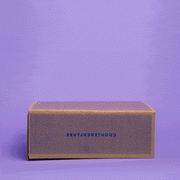-
We met the cooperative’s quality manager, Germaine Simbayobewe, on our first sourcing trip to Burundi in 2009. In that first meeting, we were struck by his passion for coffee. A few years later, we connected with Germaine again—this time at Kazoza N’Ikawa—and saw how his drive and seriousness manifested in some of the best-picked and best-sorted coffee we have seen in Burundi. This is our eleventh year purchasing coffee from this cooperative, with help from COCOCA, a cooperative union of which Kazoza N’Ikawa is a member.
Kayanza is a province in the northwest of Burundi known for its tea and coffee production. Farms associated with Kazoza N’Ikawa are small—typically less than one hectare with a few hundred coffee trees. As in most of Burundi, farms here use eucalyptus trees for shade and are intercropped with fruits, vegetables, and potatoes. In late 2022, the cooperative was awarded a Seeds grant to distribute avocado and papaya tree seedlings to its members. These trees will bear fruit that may be consumed by cooperative members or sold for supplemental income.
Like many coffees from the Great Lakes region of East Africa, there is a small likelihood of experiencing Potato Taste Defect, or PTD, when grinding your coffee. Though a bit unpleasant and highly aromatic, PTD affects individual beans and is safe to consume. We've measured the PTD incidence rate of this lot to be 1 occurrence in 12.5 pounds, on average. If you would like to learn more about this defect, as well as some tips for avoiding it in your cup, check out our Potato Taste Defect blog post.
-
Harvest
Process: Washed
Certifications: Kosher
Elevation: 1,781 meters
Variety: Bourbon, Mbirizi, Jackson
Harvest Time: April 2023–July 2023
Available: Through mid-April 2024
-
Kazoza N'Ikawa
Length of Partnership
1995 2009 202517 years
Location

-
We believe in paying more.
Since 2009, we have published an annual transparency report to serve as a blueprint for our green coffee purchasing practices and a response to chronically low prices in the coffee industry. We believe paying more for green coffee is an important investment in the long-term viability of our coffee-growing partners’ businesses and our supply.
$0 $5$4.00 FOB (Free on Board)/lb - Our price for Mpemba
$1.96 FOB/lb - Fair Trade Certified Minimum
$1.76 FOB/lb - Average C Market Price
-
![]()
Sustainably-Sourced
-
![]()
Quality-Focused
-
![]()
B Corp Certified
-
![]()
Transparently Traded
![]()
Sustainably-Sourced
![]()
Quality-Focused
![]()
B Corp Certified
![]()
Transparently Traded












